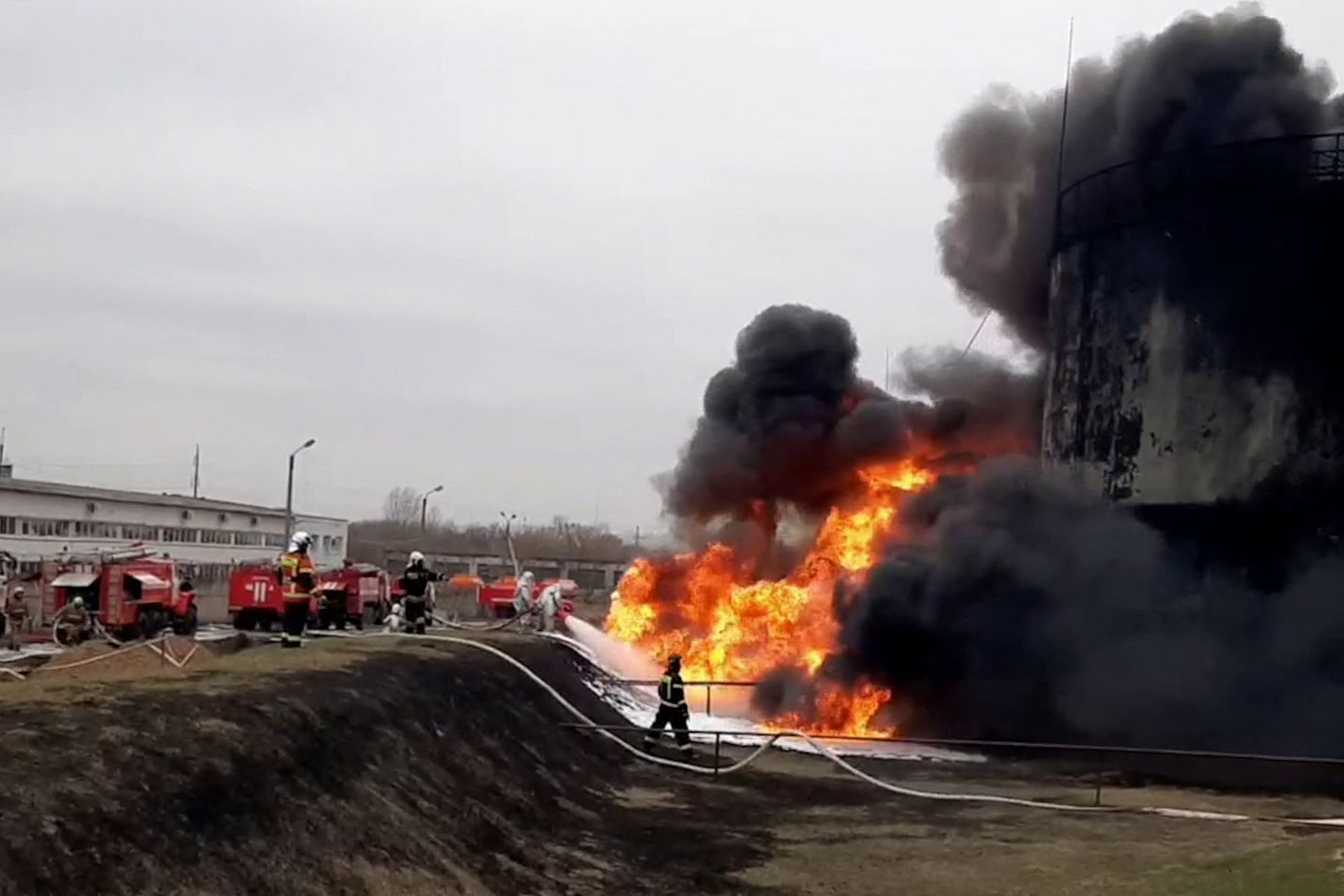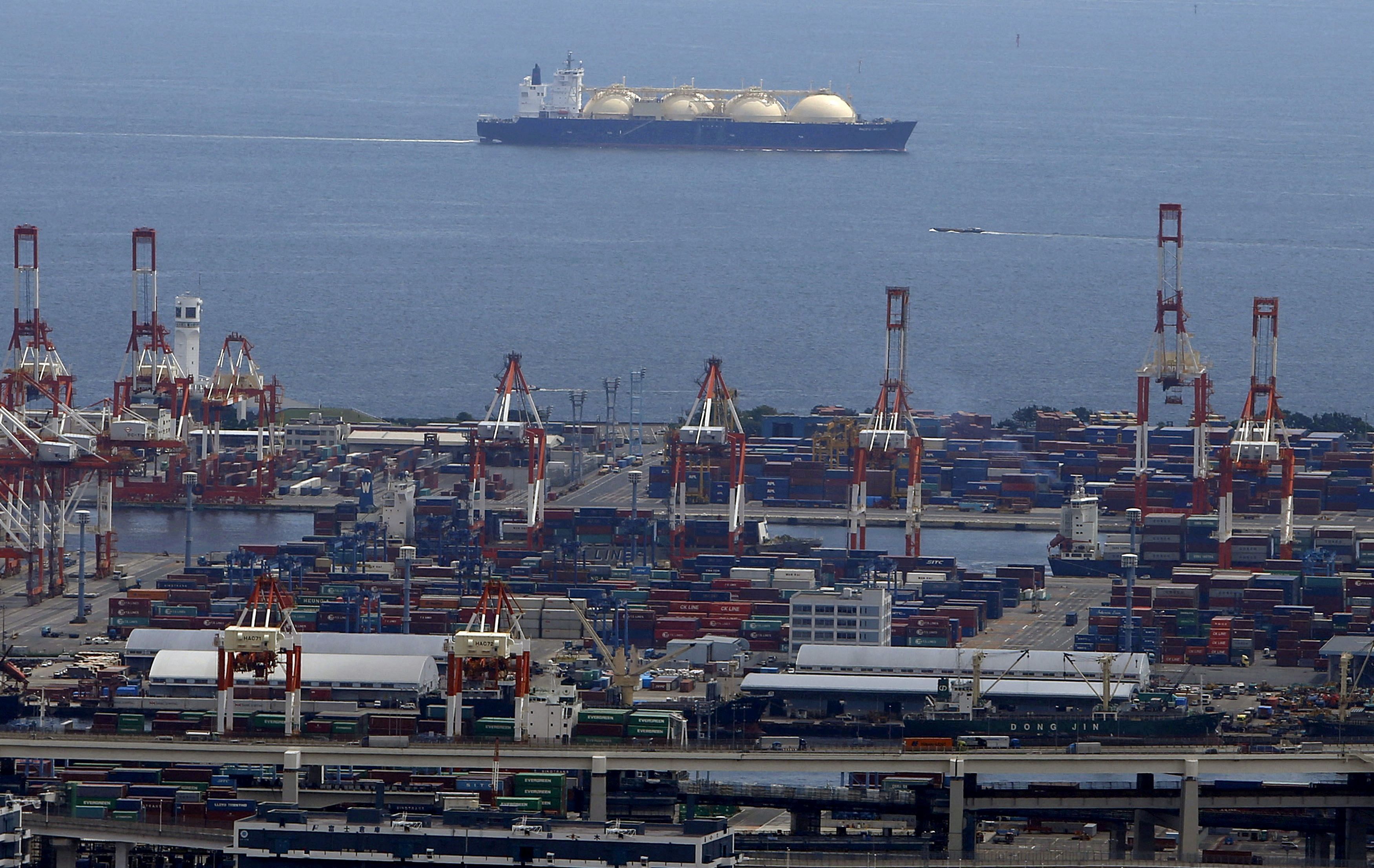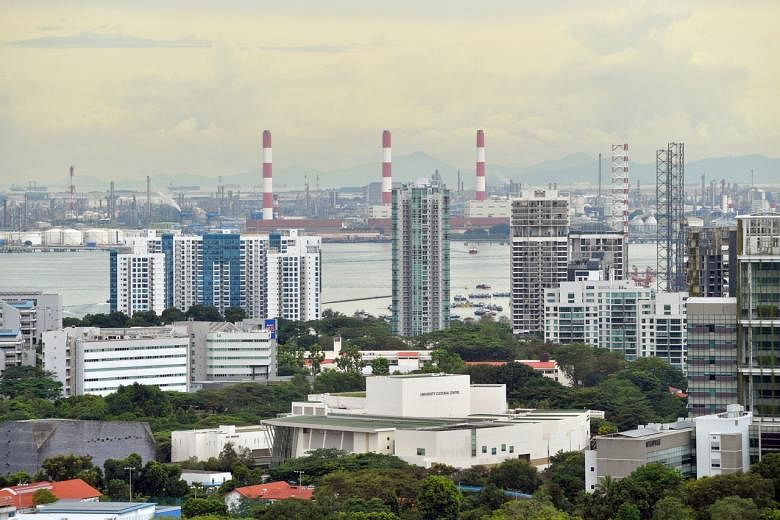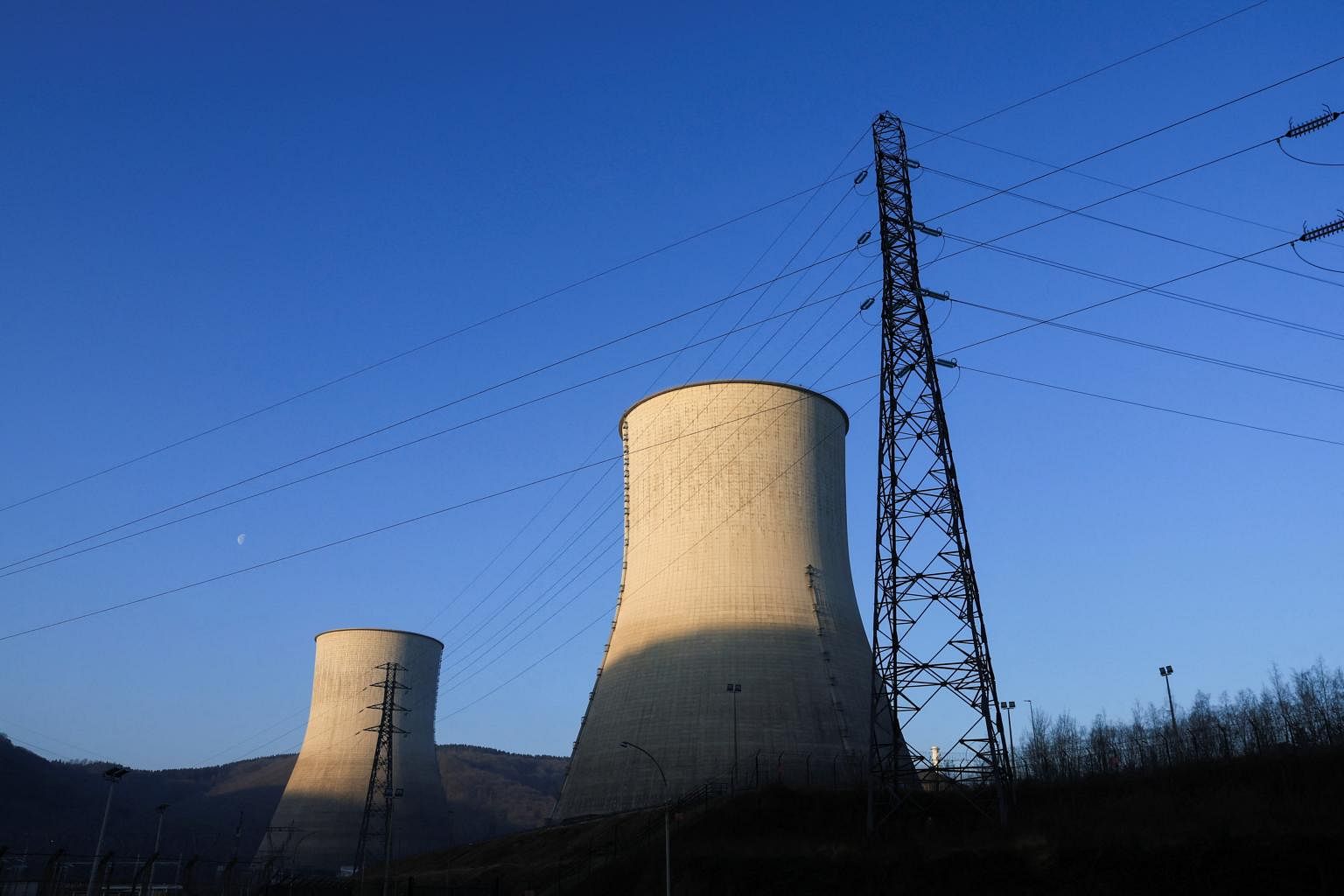Will the Ukraine war hinder or hasten the green energy transition?
Sign up now: Get insights on Asia's fast-moving developments

The crisis underscores the world's deep dependency on coal, oil and gas.
PHOTO: AFP
The war in Ukraine has created a perfect storm for global energy supplies: Surging fossil fuel prices, intense competition and rising geopolitical risk.
With climate change impacts intensifying, will the crisis unite the world in stronger global climate action and spending on cheaper renewable energy? Or will the crisis entrench fossil fuels in the rush for energy security?
Ukraine war a perfect storm to spark global energy reset

The crisis underscores the world's deep dependency on coal, oil and gas.
PHOTO: AFP
Everyone is feeling the pinch: soaring petrol prices and a painful jump in electricity bills.
The war in Ukraine, in addition to the terrible human cost, has upended the world's energy system and the price spikes are symbolic of a global scramble for fossil fuel supplies as nations in Europe and elsewhere rush to replace Russian energy exports.
The crisis, building on a surge in fossil fuel prices last year, underscores the world's deep dependency on coal, oil and gas.
Soaring LNG prices expected to hurt Asia

An LNG tanker in Yokohama, Japan. The scramble for LNG means global prices are likely to stay high for another two years.
PHOTO: REUTERS
Asia is set to be hard hit by the war in Ukraine, especially poorer nations already struggling to meet their energy needs.
The region imports about 70 per cent of the world's liquefied natural gas (LNG) production and the super-chilled fuel has become an essential part of Asia's growing appetite for energy.
LNG prices have surged on supply and energy security concerns. This is piling on more costs for Asian nations already facing high gas prices before Russian troops invaded Ukraine in February.
Despite geopolitical uncertainties, S'pore power sector can still hit climate targets

The power sector is a significant contributor to Singapore's total emissions.
ST PHOTO: DESMOND WEE
Electricity prices in Singapore have gone up again for the fifth quarter in a row since the start of 2021.
The latest increase of almost 10 per cent - from 25.44 cents to 27.94 cents per kilowatt-hour (kWh) before the goods and services tax - was due to "significantly higher global gas and oil prices exacerbated by the conflict in Ukraine", grid operator SP Group said last Thursday (March 31) .
What will the rising energy prices - first wrought by the global energy crunch, and then exacerbated by the war in Ukraine - mean for Singapore's plans to reduce emissions from its fossil fuel-dependent power sector?
How will Singapore green its energy sector?

Five types of technology highlighted in the Energy 2050 Committee Report released last week can potentially help the power sector - which accounts for 40 per cent of the country's emissions - achieve its goal of net-zero emissions by 2050.
Here's a look at the different types.
ST Explains: How safe is nuclear power for Singapore?

A nuclear power plant in France. Nuclear energy technology has improved over the years, said the Energy 50 Committee.
PHOTO: REUTERS
Nuclear energy could help to power Singapore by 2050, a report published last month had found.
The technology, once deemed unsuitable for the country, has already improved over the years, and greater progress lies ahead, said the Energy 50 Committee convened by the Energy Market Authority to chart a greener future for the country's power sector.
In particular, the report said that nuclear fusion technology and small modular reactors could be of interest for Singapore. The Straits Times speaks to experts about how nuclear technology works, and the recent developments in the space.


